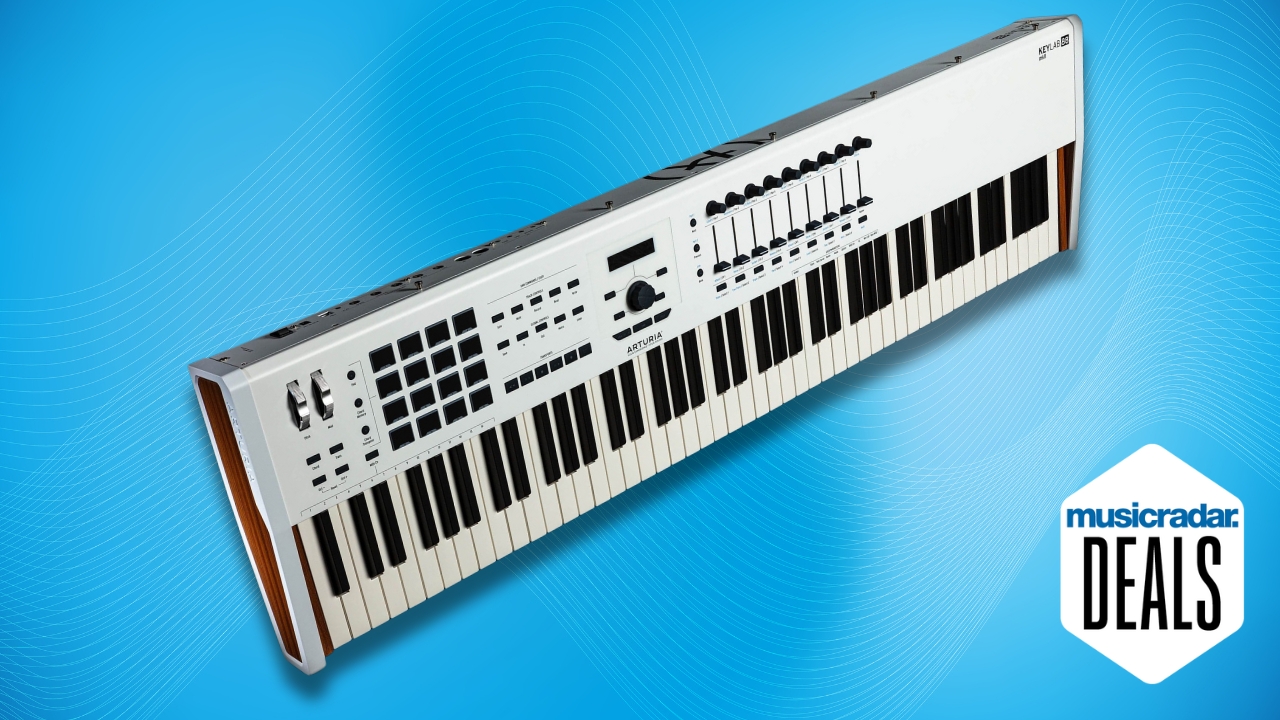Trevor Horn talks Frankie, SARM and synths
30 years on, Horn returns to the Pleasuredome
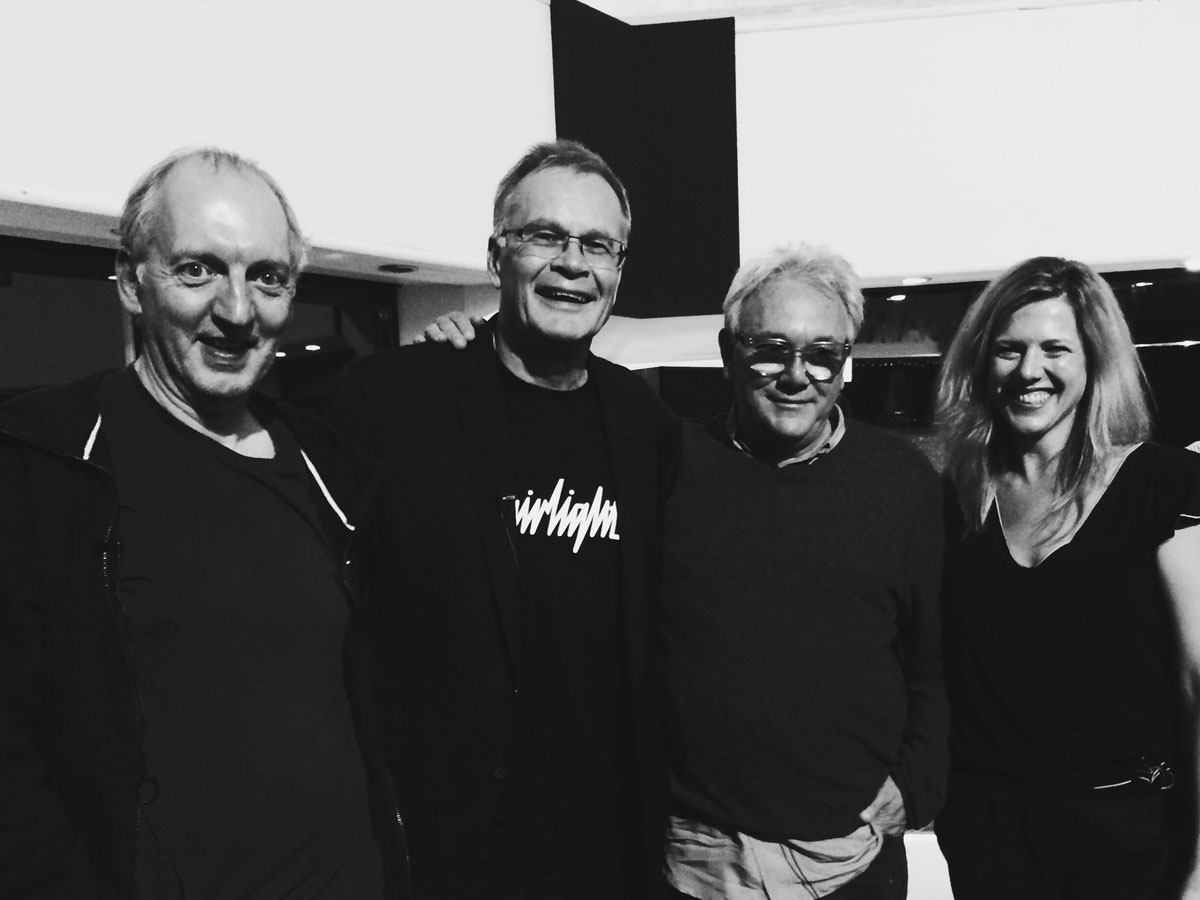
Introduction
It’s 30 years since Frankie Goes To Hollywood’s Welcome to the Pleasuredome sexed up the charts. MusicRadar was at Sarm West in London on Thursday 25th September to celebrate the album’s anniversary and enjoy an exclusive interview with producer and Zang Tuum Tumb label co-founder, Trevor Horn.
“They wanted Kiss meets Donna Summer,” says legendary producer Trevor Horn, succinctly describing the sound of Frankie Goes to Hollywood. The iconic Welcome to the Pleasuredome album is 30 years old this year - a bombastic, epic pop celebration of sex and youth, starring Holly Johnson, Paul Rutherford and “the lads”, that was often dismissed by music critics at the time as shallow hype.
"Trevor Horn’s flagship studio is currently being deconstructed and reassembled - as much as the myriad of 12” mixes that were conceived within it"
Yet this was a double LP that featured the monster record industry-shaking hits Relax and Two Tribes plus the awesome 16-minute version of Welcome to the Pleasuredome - as well as spawning a dizzying collection of influential remixes and launching a million Frankie Says T-shirts.
Now, three decades on, more than 60 dedicated fans, friends and journalists packed into Sarm Studios’ infamous blue building in Basing Street, London, for a complete vinyl playback of Welcome to the Pleasuredome on a beautifully-expensive Audio Note hi-fi system.
Colleen Murphy, founder of Classic Album Sundays, also hosted the Q&A sessions with Trevor Horn and two of his ZTT production “THeam” - Steve Lipson, engineer (and also producer of most of Propaganda’s A Secret Wish) and JJ Jeczalik, Fairlight programming genius and founding member of The Art of Noise.
Even Paul Morley, the other co-founder, journalist and architect of the Zang Tuum Tumb label name, sleevenotes and cover designs, appeared in a video message that was given its own ZTT catalogue number (ZTIS317).
Unique insights into the making of the album included the revelation that The Power of Love was speeded up in the final mixdown because it was too slow, taking it from a song in E to a song in F; the band Foreigner hated Relax; and the street sounds in Welcome to the Pleasuredome were achieved when Horn put the microphone out of a Sarm studio window to record cleaners outside sweeping up after the Notting Hill Carnival.
The anniversary event was also very much drawing a line under an era at Sarm West, as Trevor Horn’s flagship studio is currently being deconstructed and reassembled - as much as the myriad of 12” mixes that were conceived within it - with plans for apartments and new studios at Basing Street, while a brand new Sarm Music Village complex at the old Virgin Music premises up the road, is coming online later this year [watch out for a Future Music In the Studio soon].
After the event, we enjoyed an exclusive audience with Trevor Horn to discuss his studio plans, his work with Pet Shop Boys, ABC and most recently, Billy Idol; and hear his views on the great hardware versus software synth debate.
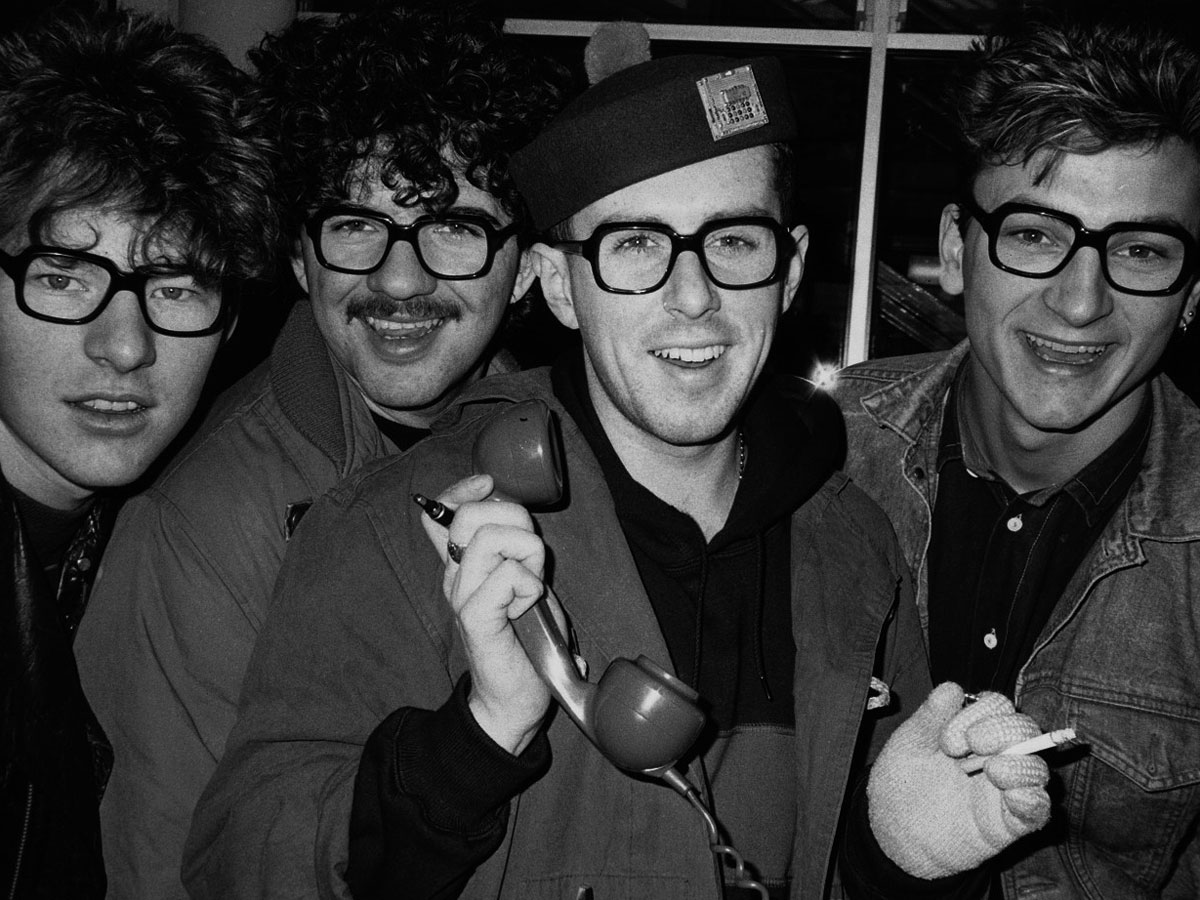
Beyond the Pleasuredome
How do you feel looking back at thirty years since Welcome to the Pleasuredome, with a new era beginning at Sarm?
Trevor Horn: "It’s exciting, because lately we’ve had the phenomenon of a young person with a laptop sitting on top of a 96-fader board - know what I mean? The guys love it being in the studio; they’re loving the monitoring, air conditioning, all the good things about it, but they don’t need the SSL J desk.
"Sarm Music Village is a new kind of studio - there are actually nine rooms in there, but they can all be linked in different ways"
"Sarm Music Village is a new kind of studio - there are actually nine rooms in there, but they can all be linked in different ways. Two of them are proper high-end Sam Toyoshima control rooms and the rest are kind of a combination of things - they’re like project rooms, but they’re a very interesting combination.
"We’re coming online at the beginning of November, and we’ll have a month or two to get it all running properly. Music Village will have all the good stuff - class A electronics, best quality microphones, amazing monitoring, NEVE equipment and so on - with none of the things you don’t need. It’s the same kind of ethos as Sarm West."
Was the ethos of Sarm always to have cutting-edge tech?
Trevor Horn: "Well, in the mid-1970s Sarm was actually the first 24-track studio in England, and then it was the first 48-track. We used to call the sync machine Tugboat Annie - it would take 25 seconds back then to lock two machines together. Imagine mixing 90125 [Yes album] with a 16-track on one machine and a 24-track on another and taking 25 seconds before it locks!"
There’s no wonder you went away and did The Art of Noise as a break from making that Yes album…
Trevor Horn: "Well, the Art of Noise was just a lot of stuff we had kicking around, crazy shit we were coming up with while making other people’s records, and we just started to make tracks ourselves."
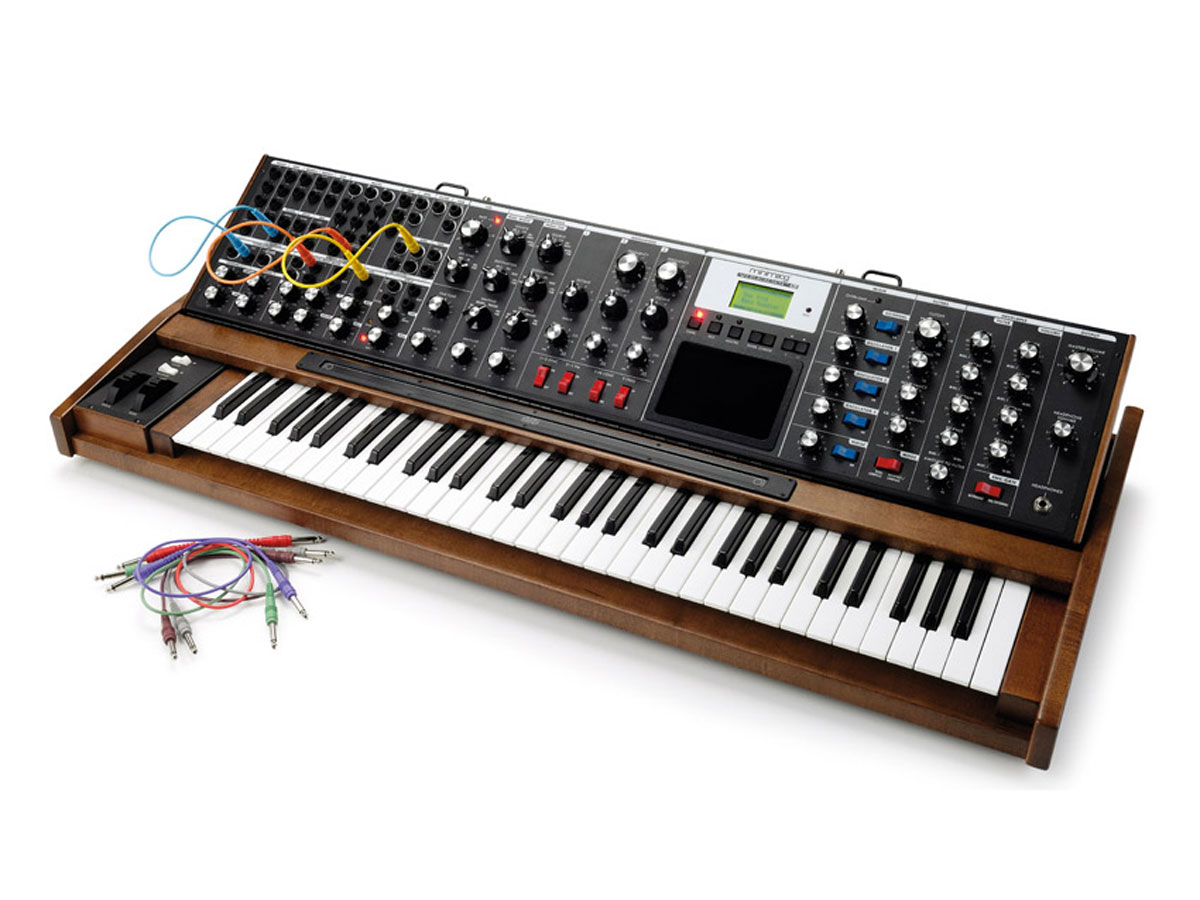
Pet synths
Is it true you have an analogue-only room in the new set-up at Sarm Music Village?
Trevor Horn: "Yes. The idea was to make one of the rooms totally analogue, but it’ll be going into a computer - it’s everything before the computer that’s analogue. There’s no point in thinking you can go back to recording on 24 tracks…"
"The last Pet Shop Boys albums that I worked on, one of the first things we did was to take all of the stuff that was done with soft synths and run it through real synths"
There are constant arguments raging about whether it makes a difference using analogue gear before going to digital - do you believe that it is better that way?
Trevor Horn: "I think in the case of synthesisers particularly, yes - I really try not to use plug-ins. I’ve heard a lot of plug-ins that sound great, but my problem with them, is that analogue synths have a certain sound to them.
"One of my favourite things these days are the boutique synths - I love them. Like the Moog Voyager - that is a wonderful piece of kit. I also have a Moog Little Phatty. I still have my Roland JX-8P too - love that as well. Fat Fifths! I used that sound on Slave to the Rhythm [Grace Jones]. I just like to see a box with the oscillators in it and the knobs on it, because I feel more reassured.
"With the last Pet Shop Boys albums that I worked on [Fundamental - 2006] one of the first things we did was to take all of the stuff that was done with soft synths and run it through real synths and it makes a difference - not with one track, but it makes the difference with the whole thing if you start with that kind of philosophy.
"There’s a way that those old analogue synthesisers sound where they don’t upset or annoy the speakers in the same way if you play a great big chord on them or something, whereas modern digital synths are tacky around the edges."
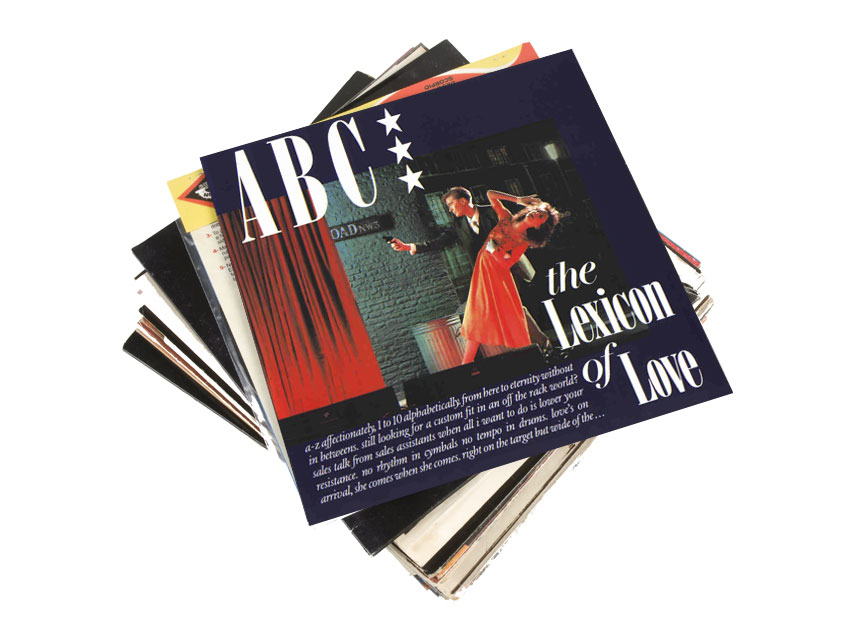
Easy as ABC
Do you program your own sounds?
"I could knock a beat out of a Linn in seconds - loved it.""
Trevor Horn: "I'm a factory presets guy - I hardly have the time now to work with a synthesiser, although back in the Dollar days I used to work all the kit then. It’s funny earlier [in the Colleen Murphy Q&A] when someone picked up on my work with the Linn drum machine on the Frankie tracks, which were just me and the Linn. I could knock a beat out of a Linn in seconds - loved it."
Have you played with any of the new drum machines, including the Roger Linn/Dave Smith Tempest?
Trevor Horn: "Yeah, I tried one but I didn’t like it. In fact I’ve bought Roger Waters’ Linn 2 as well, so I now have a mint Linn 2. But I also used to have set of Simmons drums and triggered them using the Linn or a Roland 808.
"That was the little rig I used on Dollar and on the ABC album too [The Lexicon of Love] - I programmed Poisoned Arrow on it and then Look of Love. Although by then, ABC, who were really bright guys, had figured out the process, and bought the drum machine, so they were ahead of the game - 'we’ve already got the drums down!' I could talk about drum machines for hours…"
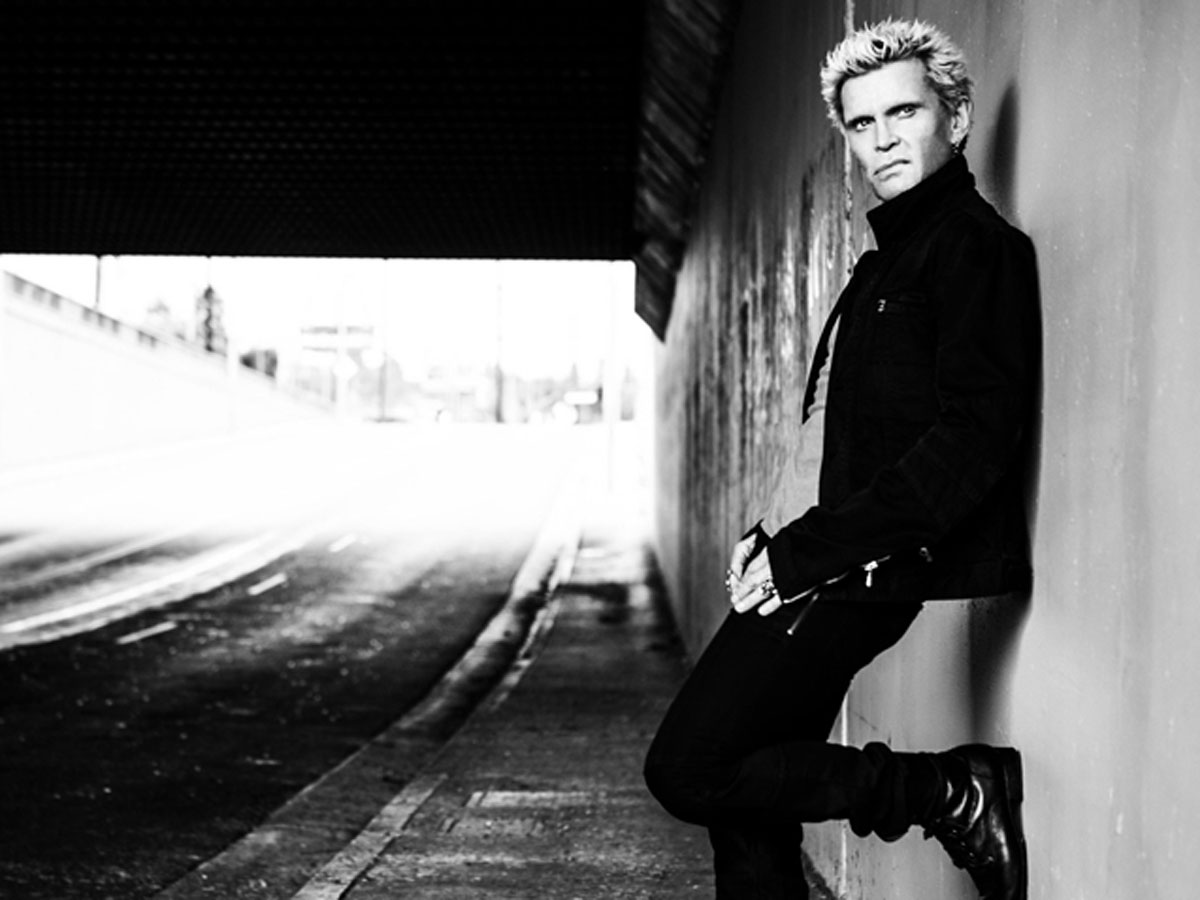
Working with an Idol
Finally, you’ve been working with another 1980s icon - Billy Idol. What was it like producing that album?
Trevor Horn: "Yeah, I really enjoyed it - Billy Idol and Steve Stevens came over and me and the guys in the band did the rest of it. We had a lot of fun. I played bass on quite a few tracks - nearly had a heart attack on some of the more aggressive ones!
"Billy said he’d never heard anybody else sing one of his songs before and it kind of moved him a little bit"
"Billy was great - he had such a good attitude and loved the backing tracks that we’d done. If there was anything on them he didn’t like, he said straight out and there was no problem. Some people harbour it and tell you two days later, but Billy was “that’s great,” or, “I think that could be different,” or whatever.
"Another thing that was cool is that I had to learn all the songs and do a guide vocal, so that we could work on the tracks. When Billy came over to sing, I told him I’d done that and he wanted to hear the tracks with me singing on them. I said that it’s not going to help you much because I don’t sing them that well - but he really liked it and made me play three or four of them. Billy said he’d never heard anybody else sing one of his songs before and it kind of moved him a little bit you know?
"And it was funny, because I ended up doing most of the backing vocals, because I could kind of do Billy Idol a bit! There are a lot of backing vocals that Billy did too - where it was obvious it was me - but I really enjoyed it."
The ultra-deluxe limited edition reissue of Welcome to the Pleasuredome by Frankie Goes to Hollywood is out on 28 October and is available to pre-order now from Pledge Music.
Billy Idol’s new album Kings & Queens of the Underground is out on 21 October.









